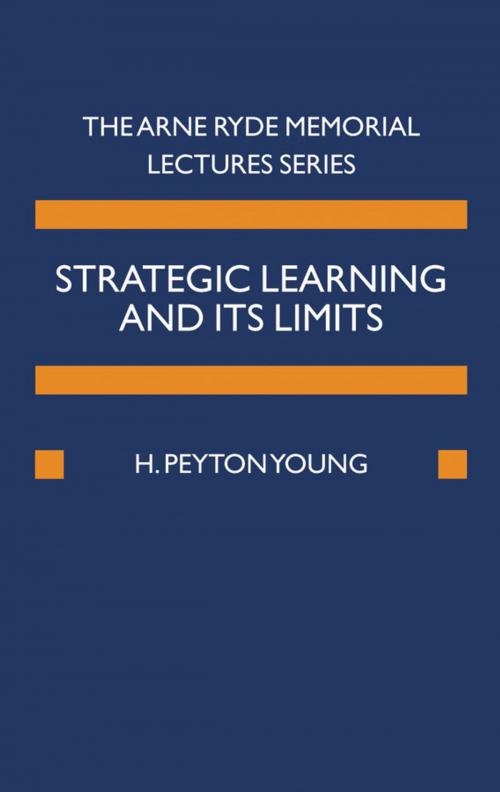Strategic Learning and its Limits
Business & Finance, Economics, Economic Development, Nonfiction, Science & Nature, Mathematics| Author: | H. Peyton Young | ISBN: | 9780191500732 |
| Publisher: | OUP Oxford | Publication: | November 4, 2004 |
| Imprint: | OUP Oxford | Language: | English |
| Author: | H. Peyton Young |
| ISBN: | 9780191500732 |
| Publisher: | OUP Oxford |
| Publication: | November 4, 2004 |
| Imprint: | OUP Oxford |
| Language: | English |
In this concise book based on his Arne Ryde Lectures in 2002, Young suggests a conceptual framework for studying strategic learning and highlights theoretical developments in the area. He discusses the interactive learning problem; reinforcement and regret; equilibrium; conditional no-regret learning; prediction, postdiction, and calibration; fictitious play and its variants; Bayesian learning; and hypothesis testing. Young's framework emphasizes the amount of information required to implement different types of learning rules, criteria for evaluating their performance, and alternative notions of equilibrium to which they converge. He also stresses the limits of what can be achieved: for a given type of game and a given amount of information, there may exist no learning procedure that satisfies certain reasonable criteria of performance and convergence. In short, Young has provided a valuable primer that delineates what we know, what we would like to know, and the limits of what we can know, when we try to learn about a system that is composed of other learners.
In this concise book based on his Arne Ryde Lectures in 2002, Young suggests a conceptual framework for studying strategic learning and highlights theoretical developments in the area. He discusses the interactive learning problem; reinforcement and regret; equilibrium; conditional no-regret learning; prediction, postdiction, and calibration; fictitious play and its variants; Bayesian learning; and hypothesis testing. Young's framework emphasizes the amount of information required to implement different types of learning rules, criteria for evaluating their performance, and alternative notions of equilibrium to which they converge. He also stresses the limits of what can be achieved: for a given type of game and a given amount of information, there may exist no learning procedure that satisfies certain reasonable criteria of performance and convergence. In short, Young has provided a valuable primer that delineates what we know, what we would like to know, and the limits of what we can know, when we try to learn about a system that is composed of other learners.















